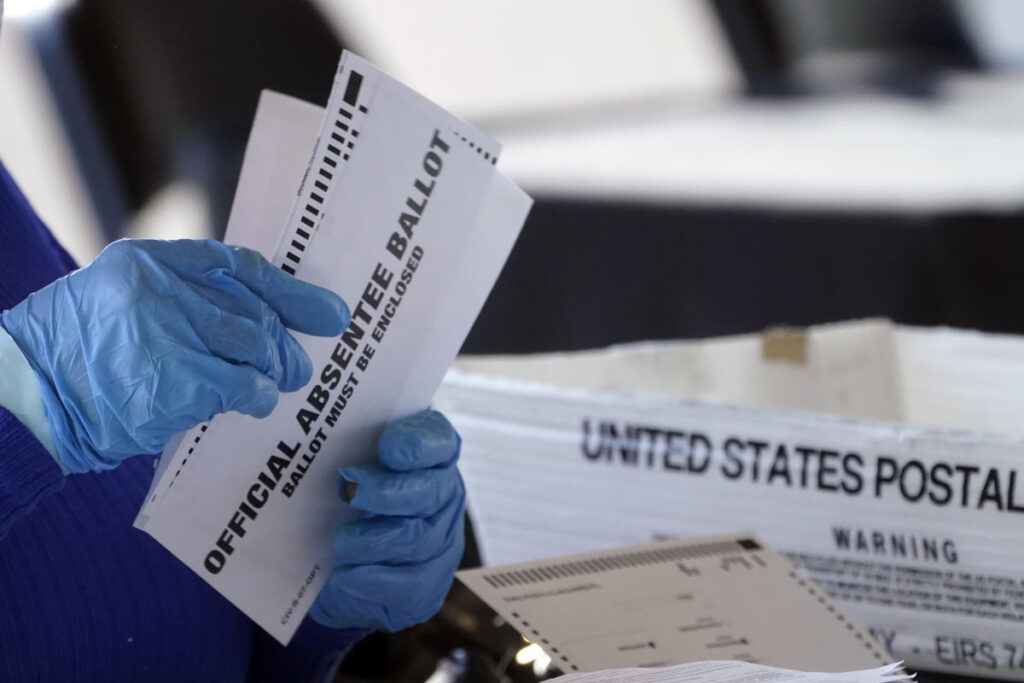On Saturday, a Georgia judge dismissed a Republican lawsuit aimed at preventing counties from opening election offices on the weekend for voters to personally submit their mail-in ballots. The lawsuit specifically targeted Fulton County, a key Democratic stronghold that encompasses a significant portion of Atlanta, which accounts for roughly 11% of Georgia’s total voters. Following the court’s decision, at least five additional populous counties, known for their Democratic leanings, also declared that their election offices would be available over the weekend for hand delivery of absentee ballots. This move underscores a broader Democratic strategy to enhance voter accessibility as Election Day approaches.
The lawsuit was filed late on the previous Friday, referencing a section of Georgia law that prohibits ballot drop boxes from being available after the end of early voting. However, an important aspect of state law allows voters to personally deliver their absentee ballots to county election offices until polls close at 7 p.m. on Election Day. During a hastily arranged emergency hearing, the attorney representing the Republican Party, Alex Kaufman, contended that voters should face restrictions on hand-delivering their absentee ballots from the close of early in-person voting until the onset of Election Day, despite his admission that mail-in ballots could still be processed during that timeframe.
Judge Kevin Farmer, presiding over the hearing via an online format, rejected Kaufman’s arguments unequivocally, stating, “I find that it is not a violation of those two code sections for a voter to hand-return their absentee ballots.” This ruling serves not just as a legal decision but also as a reaffirmation of voters’ rights to participate in the election process without undue restrictions, especially in light of recent controversies surrounding election security and transparency.
Over recent years, Fulton County has been under intense scrutiny from Republican officials, particularly following President Donald Trump’s allegations of election fraud related to the 2020 presidential election, which Trump lost in Georgia. State GOP chairman Josh McKoon expressed concern that counties governed by Democrats were allegedly “illegally accepting ballots,” fueling a narrative of electoral impropriety that has gained momentum among Republican activists. This situation reflects a broader national landscape concerning election integrity, where claims of fraud continue to influence political discourse and lead to legal actions.
Compounding the situation, a Fulton County election official communicated to election workers that observers would not be permitted inside election offices while voters submitted their ballots. This remark elicited a backlash from GOP activists, who argued it undermined transparency. However, Fulton County elections director Nadine Williams clarified during the hearing that the offices in question are not designated polling places, where partisan poll watchers typically have greater access. Later in the day, Williams further clarified via email that the ballot submission process should indeed be open to public observation, indicating an effort to reassure transparency in election processes.
By Saturday evening, a total of 105 absentee ballots had been documented as received at four different locations in Fulton County, signaling an active participation rate among voters utilizing the extended weekend hours. This scenario not only emphasizes the ongoing legal and political disputes surrounding election processes in Georgia but also highlights the critical role that election offices have in facilitating voter engagement during crucial periods leading to elections. As counties navigate these challenges, the focus on accessible and transparent electoral practices remains paramount in the current voting climate.

